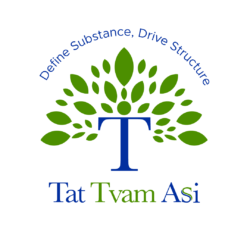
BUSY-NESS DOESN’T MEAN BUSINESS
Being active doesn’t necessarily mean that you have been productive. At work, the metric that makes the difference is “growth”. Every leader starts off with the vision to grow the organisation. But that is easier said than done. More often than not , rather than focussing on the core activity that will ensure results, their time & energy is expended in putting out fires in different facets of their businesses. As a result of which the time that was originally set aside to perform productive activities, shrinks. The challenge therefore is in having to do a lot more in less time. A leader must be smart about how they spend their time and energy to drive growth for their businesses.
“We think, mistakenly, that success is the result of the amount of time we put in at work, instead of the quality of time we put in.” – Arianna Huffington
Another pattern that unknowingly yet surely sets in when one is dragged into this melee, is that many managers appraise themselves on the number of hours that was spent at work, even if the results were not achieved. Keeping “busy” at work then becomes the focus, and the end result gets clouded.
Here are some simple tips to stop ourselves from falling prey to this pattern of “busy”ness
Photo by Suzy Hazelwood from Pexels
- The good old diary :
We could write down the activities that need to be accomplished for the day. All the while asking ourselves, the relevance of this activity to our stated goals. One must begin by classifying them into urgent, important and others. Always stop as many times as you can, during the day to check on the progress being made in these areas.
Photo by Startup Stock Photos from Pexels
- Preparation is as important as action :
Anticipate chaos. Anticipate that unscheduled meetings are bound to come up. One of the most important steps of being productive is being as well prepared as possible. Knowing what to expect and how to carry out the task already puts you in a favourable position. Developing a solid plan can help save leaders a lot of time and effort by helping them avoid any foreseeable mistakes or complications that may arise along the way.
Photo by fauxels from Pexels
- The devil is in the delegation :
“When we tell people to do their jobs, we get workers. When we trust people to get the job done, we get leaders” – Simon Sinek.
A common shortfall noticed amongst many under performing leaders is that they don’t delegate their tasks well. A good leader must focus on their strengths and trust their teams to deliver the tasks assigned. Evaluating your team and charging the most capable person/s with important tasks takes a lot of the pressure off and helps you perform more important activities while also developing your team.
Photo by Maurício Mascaro from Pexels
- The eye of the bird
Multitasking is overrated. It’s a sure shot way to drain your energy. This has a negative effect because you will go through the day just being a participant. Instead, focus solely on the most important task at hand and try to complete it as soon as possible because as the clock ticks, the energy to contribute effectively will wane.
Photo by Mateusz Dach from Pexels
- Take a break :
This is as important as any other item on your schedule for the day. As counter productive as it may seem, taking a short break between tasks is great as it not only helps leaders refresh and reset, but also provides the much needed space for their reportees to carry out their work without the pressure of having their leader breathing down their neck constantly.
Organisations across the world work with business coaches to boost the productivity of their teams. A business coach can help leaders be more productive and drive growth within their organisations. Working with a business coach can give leaders an edge by helping them develop a personalised framework to be more productive with their time. Coaches work with leaders to help analyse and understand priorities and how best to spend their finite time and energy towards achieving their goals. A coach questions your decisions in order to help you think more clearly before making the right decisions.
Take this survey to find out if and how business coaching can help your organisation : Development Coaching Assessment






